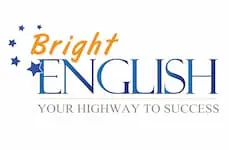Tip 1
sentences with regular simple verbs versus the verb -to be- in the Simple Present.
In English, when we want to give general information about something or someone, we will use simple verbs.
That is, a verb without any addition such as live, go, take, open, close. These verbs mainly help us describe:
- facts
- Frequency of actions and habits
- permanent situations
My name‘s Asaf, I live in Israel, I‘m 33 years old and I work as an English teacher. I teach English 5 times a week. I have one sister, she is a student and she lives in the United States. I enjoy listening to music in my free time.
– We will note that there are two types of constructions both belonging to the Simple Present but are phrased differently:
- I live in Israel (permanent situation)
- I work as an English teacher (permanent situation)
- I teach English 5 times a week. (frequency of action/habit)
- I have one sister (fact)
- She lives in the United States (fact/permanent situation)
– What all the sentences above have in common is that they included regular simple verbs.
When we build sentences with the verb -to be” we get a structure that still provides general information but different than most sentences in the Simple Present and is somewhat a distinct category within the same tense:
My name is Asaf (fact)
I am 33 years old (state)
She is a student (state)
We built “a defining sentence” about my sister and myself that provided general information but did not include a regular simple verb in it. In such sentence we use the verb -to be-. Its forms in the present are -am,is,are-.
I am 33 years old – אני בן 33
Last year, I was 32 years old – שנה שעברה הייתי בן 32
Next year, I will be 34 years old – בשנה הבאה אהיה בן 34
Note down the differences between your own mother tongue and English and you’ll be quickly be on your way to speaking better English.
